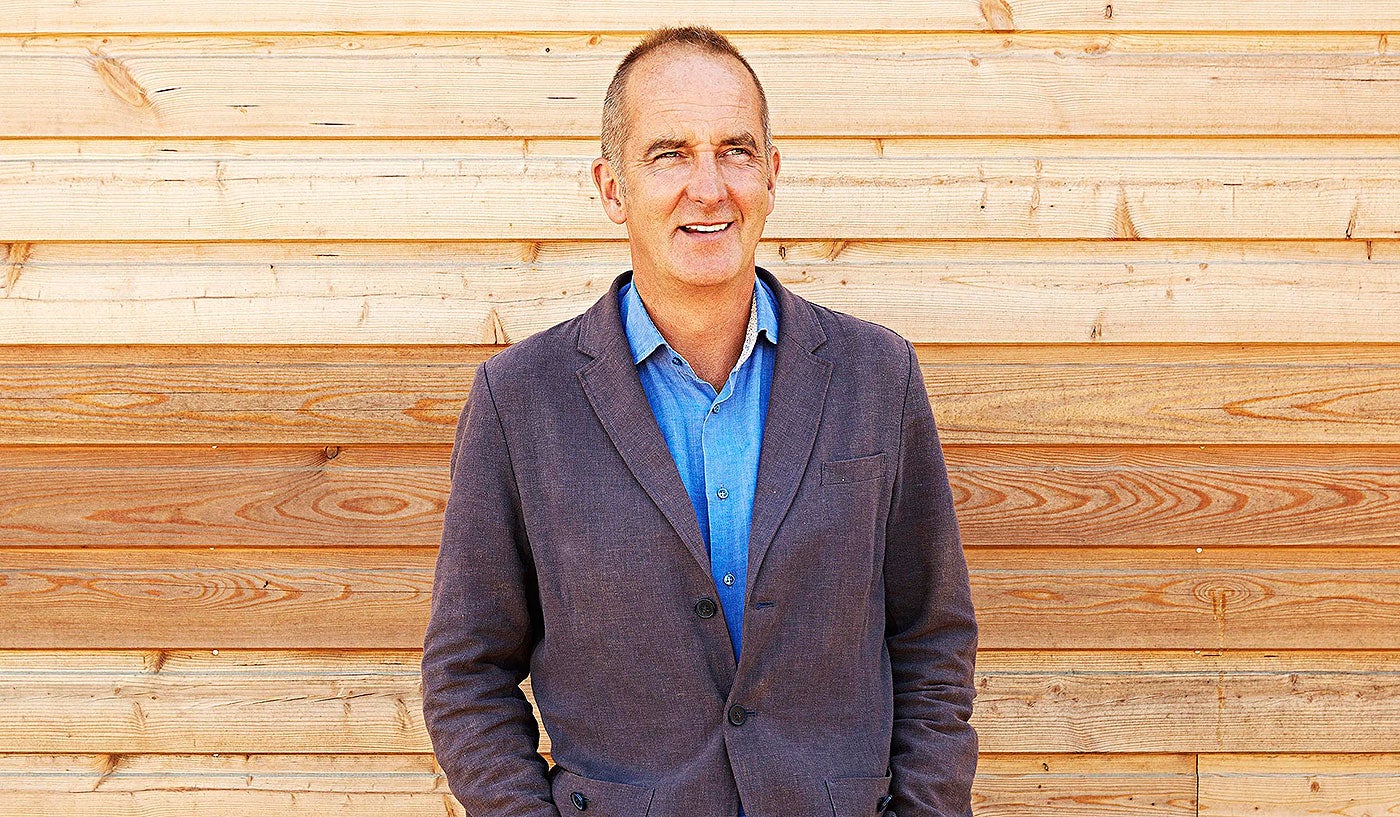‘Betrayed’ investors in Kevin McCloud’s eco housing business told they could lose most of their money
Small investors who have put millions of pounds into TV presenter’s Happiness Architecture Beauty firms face ‘97 per cent loss’

Small investors who have sunk millions of pounds into the eco-friendly building business of Kevin McCloud, one of Britain’s favourite property show presenters, have been told they could lose up to 97 per cent of their money.
Mr McCloud, who has presented Channel 4’s Grand Designs for two decades, has promised investors returns of up to 9 per cent a year from his Happiness Architecture Beauty (HAB) companies.
But this week those who bought £2.4m worth of HAB mini-bonds in January 2017 were informed they would lose 74 per cent of their money in the best case or 97 per cent in the worst.
Another group of investors, who poured £1.9m into one of the HAB companies in 2013 and were promised dividends of at least 5 per cent by the end of 2016, say they have not received a penny, with many feeling “angry and betrayed”, according to The Guardian.
Mr McCloud has said he went through “a great deal of heartache and pain” as he tried to keep the main HAB company afloat amid project delays, “systemic faults” and large debts.
“I stand shoulder to shoulder with those who have lost money,” he told the newspaper. “I will of course do everything in my power to improve the current situation.”
The UK's best treehouses
Show all 11Mr McCloud himself faces a demand for repayment from a restructuring company that has taken control of part of his empire.
The Independent contacted HAB, requesting to speak to Mr McCloud, but did not hear back.
In March, the TV presenter issued a statement via the HAB website saying he is “personally very sorry” for the delays and problems that affected a housing project in Kings Worthy near Winchester in Hampshire.
According to a statement posted on the website just two weeks before, all apart from one home at the site had been sold. On Friday, the website still showed the remaining property – a five-bedroom house – as available for sale at a price of £875,000.
One HAB investor, who put in several thousand pounds, was quoted as saying: “I’m disappointed that what I saw as an idealistic project seems to be collapsing on a sour note, with the original directors having departed and investors seemingly left to bear the entire financial burden of a failed enterprise.”
A representative of another investor, who took part in the HAB crowdfunding campaign in 2013, told the newspaper: “None of the 650 investors have received a penny in dividends or have even been allowed the opportunity to sell their shares in order to reclaim any of their investment… Many are left feeling angry and betrayed.”
During the past few days, the January 2017 bond investors have received a letter saying that “after final completion of the projects at both Kings Worthy and Cumnor Hill [in Oxford], the net return available to bondholders would be expected to range from £606,000 (best case) to £69,000 (worse case) which, in each case, is equivalent to 26 pence and 3 pence for every £1 of bond monies invested”.
As a result, the company has proposed to restructure the bonds, meaning that investors would not get any of their cash back until 2024 at the earliest.
A separate letter to the 2013 investors sent out in July says HAB Housing owes just under £1.6m to its sister company HAB Land, adding: “By way of warning, we do not expect significant income into the business for several years.”
Mr McCloud told The Guardian: “I am HAB Housing’s largest single investor and have supported the business financially for 12 years. I will of course do everything in my power to improve the current situation but I cannot discuss anything else at this point because we are, importantly, trying to find a resolution with both the mini-bond investors and the company.”
Subscribe to Independent Premium to bookmark this article
Want to bookmark your favourite articles and stories to read or reference later? Start your Independent Premium subscription today.

Join our commenting forum
Join thought-provoking conversations, follow other Independent readers and see their replies